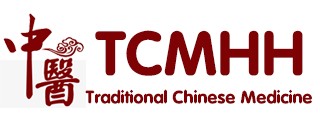Qi (pronounced "chee") is one of the fundamental concepts in Traditional Chinese Medicine (TCM). It is often translated as "vital energy," "life force," or simply "energy." In TCM, Qi is the force that animates and sustains all living beings and the universe. It flows through the body and is essential for maintaining health, balance, and harmony.
Definition of Qi
Qi is an invisible yet dynamic force that powers all physiological, emotional, and spiritual functions in the body. It is the energy that circulates through the body’s meridians (energy pathways) and connects the mind, body, and environment. TCM views health as a state where Qi is balanced and flows freely, while illness is seen as a disruption or imbalance in Qi.Key Characteristics of Qi
1. Universal Energy:
Qi is not only within the body but also exists in nature and the universe. Everything in the world is believed to be influenced by Qi.2. Dynamic and Ever-Changing:
Qi is constantly moving and transforming, adapting to the body’s needs and external conditions.3. Dual Nature: Yin and Yang:
Qi embodies the interaction between yin (passive, cooling, and nurturing energy) and yang (active, warming, and transformative energy). Balance between yin and yang ensures optimal Qi flow.Functions of Qi in the Body
In TCM, Qi performs several vital functions:1. Transformation:
Converts food, air, and fluids into energy and other essential substances the body needs to function.2. Transportation:
Moves blood, nutrients, and waste products through the body to nourish tissues and maintain bodily functions.3. Protection:
Acts as the body’s defense system, shielding it from external pathogens like cold, heat, or viruses (often referred to as Wei Qi, or defensive Qi).4. Warmth:
Regulates body temperature and provides warmth to the organs and tissues.5. Containment:
Keeps bodily fluids (e.g., blood, sweat, urine) within their proper channels and prevents leakage or excessive loss.Types of Qi
TCM categorizes Qi into different types based on its source and function:1. Yuan Qi (Original Qi):
Inherited from parents at birth and stored in the kidneys.Serves as the foundation for all other forms of Qi.
2. Zong Qi (Gathering Qi):
Derived from air (through breathing) and food (through digestion).Supports the lungs and heart, aiding in respiration and circulation.
3. Wei Qi (Defensive Qi):
Protects the body from external pathogens like wind, cold, or dampness.Circulates on the surface of the skin and between muscles.
4. Ying Qi (Nutritive Qi):
Circulates in the blood and meridians.Nourishes the internal organs and tissues.
5. Zheng Qi (Upright Qi):
Combines Wei Qi and other forms of Qi to fight disease and maintain health.Imbalances of Qi
When Qi is disrupted, it can lead to various health issues. TCM identifies several common imbalances:1. Qi Deficiency:
Symptoms: Fatigue, shortness of breath, weakness, pale complexion, and low immunity.Causes: Poor diet, chronic illness, stress, or overwork.
2. Qi Stagnation:
Symptoms: Pain, bloating, irritability, emotional distress, and tension.Causes: Stress, emotional repression, or physical inactivity.
3. Qi Rebellion:
Symptoms: Coughing, vomiting, hiccups, or acid reflux (caused by Qi flowing in the wrong direction).Causes: Improper digestion, stress, or respiratory issues.
4. Qi Blockage:
Symptoms: Sharp pain, swelling, or numbness in a specific area.Causes: Trauma, injury, or unresolved Qi stagnation.
5. Qi Collapse:
Symptoms: Extreme fatigue, dizziness, organ prolapse.Causes: Severe Qi deficiency or chronic illness.
How to Maintain and Balance Qi
Balancing and maintaining Qi is a central goal of TCM. Here are common methods used to support Qi health:1. Acupuncture:
Stimulates specific points along the meridians to improve Qi flow and address blockages.2. Herbal Medicine:
Uses natural herbs and formulas to nourish Qi, address deficiencies, or unblock stagnations.3. Qi Gong and Tai Chi:
Mind-body practices combining slow, deliberate movements, breathing, and meditation to strengthen and regulate Qi.4. Dietary Therapy:
Recommends foods that nourish Qi, such as whole grains, vegetables, and warming foods, while avoiding excessive cold or processed foods.5. Lifestyle Adjustments:
Encourages balance between work and rest, regular exercise, and managing stress to prevent Qi imbalances.Qi and the Environment
Qi is not confined to the body—it also flows through the natural world. TCM teaches that external Qi from the environment (e.g., seasonal changes, weather, and even social interactions) can influence internal Qi. For example:- Cold weather can block Qi, leading to stiffness or pain.
- Emotional stress can stagnate Qi, causing tension or irritability.
Living in harmony with nature and adapting to seasonal changes are essential for maintaining balanced Qi.
Conclusion
Qi is the cornerstone of TCM and represents the intricate connection between physical, emotional, and spiritual health. By understanding and nurturing Qi, individuals can achieve balance, vitality, and well-being in their lives. Whether through acupuncture, herbal medicine, exercise, or mindful living, TCM provides a variety of tools to maintain the harmonious flow of Qi.The knowledge about Traditional Chinese Medicine is provided free but without any warranties.
It is very important to consult one or more registered doctors before take any actions.
